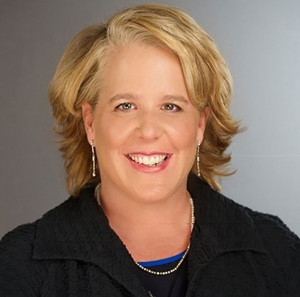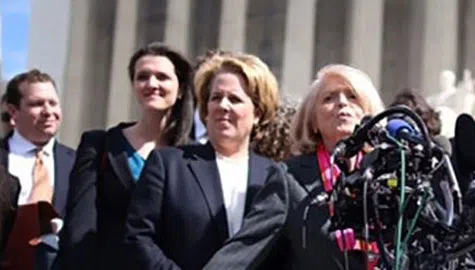
When Roberta Kaplan was approached by her client Edie Windsor, a lightbulb went off in the attorney’s head. Kaplan felt that unfair tax code was key to bringing same-sex marriage rights into Federal law.
Windsor, who was legally married to Thea Spyer in Canada, was ordered to pay over $360,000 in estate taxes when her wife passed away. The marriage was recognized in Windsor’s home state of New York. The marriage was not recognized when it came to Federal Income Tax laws.
“I thought that this was the perfect way to challenge this injustice,” Kaplan tells Steve Fast. “We have a long history in this country of not liking to pay unfair taxes.”
Kaplan argued United States v. Windsor before the Supreme Court, and won the case. The ruling knocked down a key provision of the Defense of Marriage Act (DOMA).
President Bill Clinton had signed DOMA into law. In the years since Clinton left office he had made a number of public statements more sympathetic to same-sex marriage. Kaplan was able to persuade the president to advocate for the unconstitutionality of the Act.
“Before the argument at the Supreme Court I actually approached the president’s people,” Kaplan says. She made the case for Clinton to come out against the law to give momentum to her arguments. “To his enormous credit President Clinton published an op-ed in the Washington Post about two weeks before the Supreme Court argument that basically said ‘I signed DOMA into law in 1996. It was the wrong thing to do.’”
Kaplan has written about the case in her book “Then Comes Marriage: United States v. Windsor and the Defeat of DOMA.”
Listen to the interview: Roberta Kaplan on The Steve Fast Show
Follow Steve Fast on Twitter @SteveFastShow





